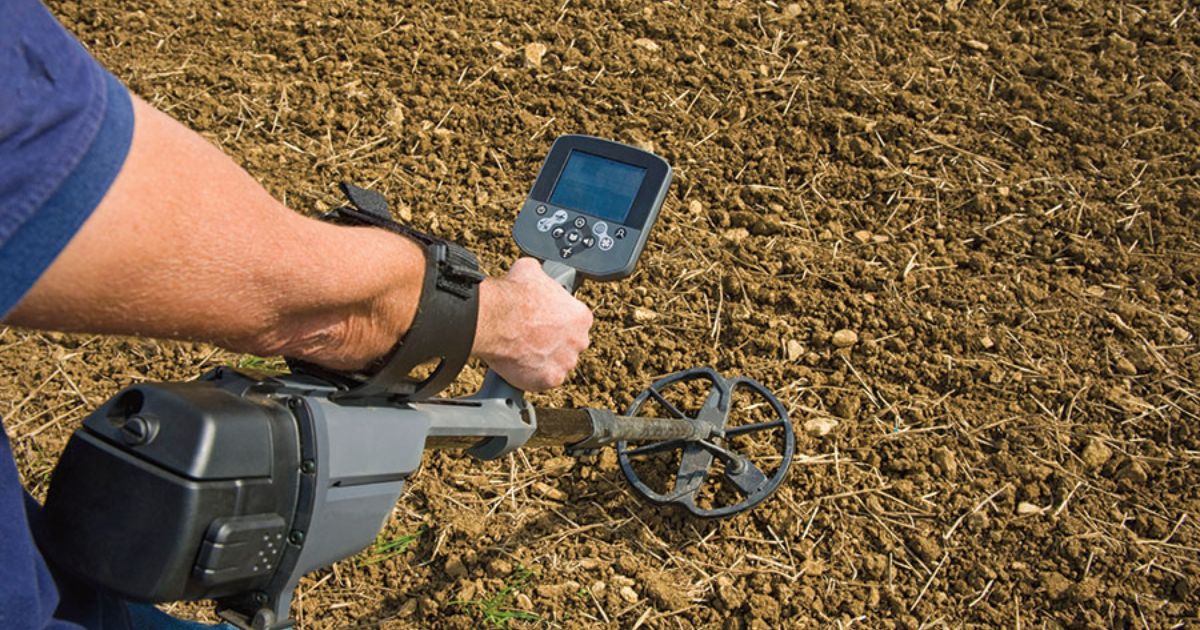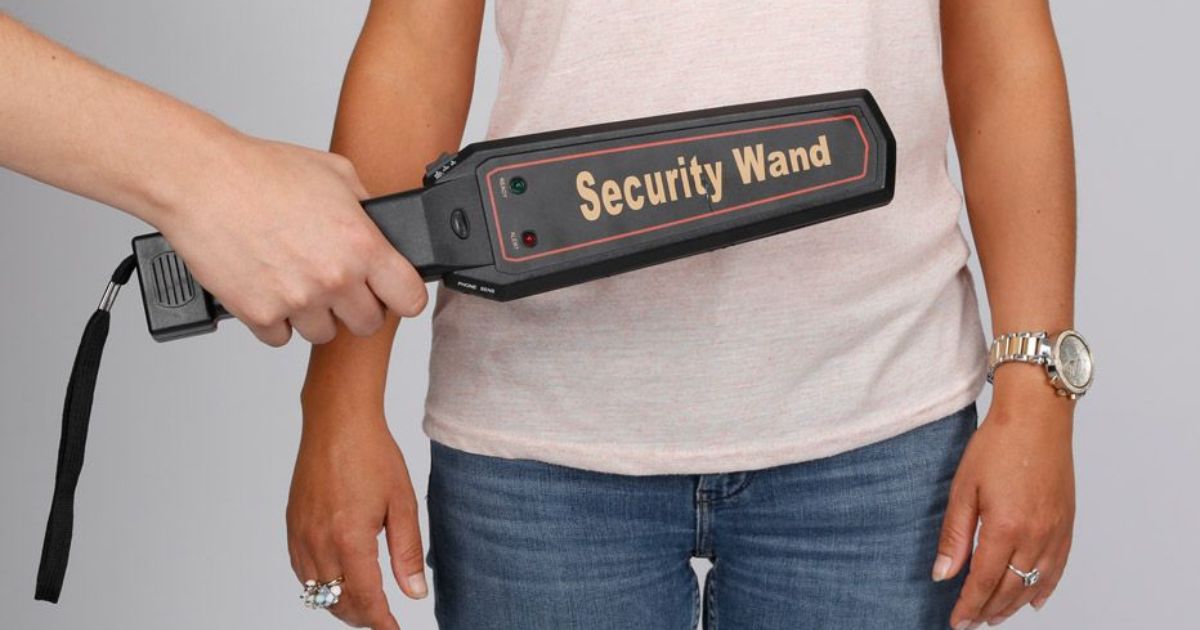In a world where metal detectors reign supreme in security and treasure hunting, there lies a curious question: Can these devices detect the elusive metal known as aluminum? Join us as we delve into the fascinating realm of metal detection, exploring the inner workings of these modern marvels and uncovering the truth behind their capability to detect aluminum. Prepare to embark on a journey where science meets curiosity, as we unravel the mystery surrounding aluminum and its relationship with metal detectors.
Key Takeaways
- Metal detectors can detect aluminum due to its electromagnetic properties.
- Aluminum foil can disrupt the electromagnetic field generated by metal detectors, triggering the alarm.
- Unbeatable Multi-Frequency Metal Detectors revolutionize metal detection, including aluminum, by using multiple frequencies simultaneously.
- These detectors offer enhanced sensitivity, versatility, and discrimination features for accurate and efficient aluminum detection.
Can Metal Detectors Detect Aluminum
Metal detectors are capable of detecting aluminum. Aluminum is a commonly used metal in various industries and everyday objects, making it important for metal detectors to be able to detect it. The detection of aluminum by metal detectors is possible due to the electromagnetic properties of this metal. When an aluminum object passes through the electromagnetic field created by a metal detector, it causes a disturbance in the field, which can be detected by the device. Metal detectors are designed to pick up different types of metals, including aluminum, by analyzing the changes in the electromagnetic field. This capability allows metal detectors to effectively identify aluminum objects, providing security and safety in various settings such as airports, schools, and public events.
How Do Metal Detectors Work
Using electromagnetic fields, metal detectors are able to detect various types of metals, including aluminum. Metal detectors work on the principle of electromagnetic induction. When a metal object comes into the range of the detector’s electromagnetic field, it creates an eddy current within the metal. This eddy current causes a change in the detector’s electromagnetic field, which is then detected by the device. The detector interprets this change as the presence of a metal object and alerts the user accordingly. Metal detectors consist of a control box, which contains the circuitry and controls, and a search coil, which emits the electromagnetic field and detects changes in it. The sensitivity and range of a metal detector can be adjusted to detect specific types of metals, making it suitable for various applications, including security screening and treasure hunting.
Setting up a Metal Detector for Aluminum Detection
Continuing from the previous subtopic, it is essential to properly configure the metal detector to effectively detect aluminum. To set up a metal detector for aluminum detection, follow these steps:
- Adjust the sensitivity: Aluminum is a non-ferrous metal, which means it has low magnetic properties. Increase the sensitivity of the metal detector to detect small traces of aluminum.
- Set the discrimination level: Discrimination allows the metal detector to discriminate between different types of metals. Adjust the discrimination level to ensure that aluminum is not ignored or mistaken for another metal.
- Use a small search coil: Aluminum objects are often small and lightweight. Using a small search coil can improve the detection of aluminum by focusing on smaller target areas.
- Practice with different test samples: Familiarize yourself with the metal detector’s response to different aluminum objects. This will help you develop a better understanding of the detector’s capabilities and improve accuracy during actual searches.
The Capability of Metal Detectors to Detect Aluminum
Metal detectors have the ability to accurately detect aluminum, making them a valuable tool in various industries and applications. Aluminum is a widely used metal due to its lightweight, corrosion resistance, and conductivity properties. Metal detectors can detect aluminum by generating an electromagnetic field that interacts with the metal, causing a disturbance in the field which is then detected by the detector. This capability allows metal detectors to identify and locate aluminum objects with precision. The table below highlights the sensitivity of metal detectors to aluminum, showcasing their effectiveness in detecting this metal.
| Metal Detector Sensitivity |
|---|
| Low |
| Medium |
| High |
Metal detectors provide a sense of security and belonging in industries such as manufacturing, construction, and aviation, where the presence of aluminum can have a significant impact on operations.
Metals Detected by Metal Detectors
Metal detectors are remarkable tools with the ability to identify a diverse array of metals, spanning from aluminum to more precious materials. Employing electromagnetic fields, these devices excel in discerning metallic objects, rendering them indispensable in applications like security screening and treasure hunting. In the realm of detected metals, which includes aluminum, it’s worth noting that detectors can extend their capabilities to identify other materials as well. For instance, detectors detect glass, showcasing the versatility of these devices in various detection scenarios:
- Iron: Metal detectors are highly sensitive to iron due to its magnetic properties. This makes it one of the easiest metals to detect.
- Copper: Another metal easily detected by metal detectors due to its high electrical conductivity.
- Silver: Metal detectors can pick up silver, which is a valuable metal often targeted by treasure hunters.
- Gold: Highly sought after, gold can be detected by metal detectors, making them indispensable for gold prospectors.
These are just a few examples of the metals that metal detectors can detect. Their ability to identify various types of metals makes them versatile tools in a wide range of industries.
Does Aluminum Trigger Metal Detectors
Aluminum, being a non-magnetic metal, can be detected by metal detectors through its electrical conductivity. While aluminum does not generate a magnetic field, it still possesses the ability to conduct electricity. This means that when aluminum comes into contact with a metal detector’s electromagnetic field, it disrupts the flow of current and creates an electrical signal. As a result, metal detectors are able to detect aluminum objects.
To further understand the detection capabilities of metal detectors, let’s take a look at the table below:
| Metal Type | Magnetic | Electrical Conductivity | Detected by Metal Detectors |
|---|---|---|---|
| Aluminum | No | High | Yes |
| Iron | Yes | Low | Yes |
| Gold | No | Low | Yes |
From the table, it is evident that aluminum, despite not being magnetic, can still trigger metal detectors due to its high electrical conductivity. This is why aluminum objects, such as cans and foil, are often detected and identified by metal detectors.
Can Metal Detectors Detect Aluminum Foil
Aluminum foil can be detected by metal detectors due to its high electrical conductivity, as discussed in the previous subtopic. When it comes to aluminum foil, here are four things to keep in mind:
- Size matters: The size of the aluminum foil can affect its detectability. Thicker foils are easier to detect than thinner ones.
- Orientation: The orientation of the foil can also impact its detectability. If the foil is flat and parallel to the ground, it is more likely to be detected.
- Sensitivity settings: Metal detectors can be adjusted to different sensitivity levels. Higher sensitivity settings increase the chances of detecting aluminum foil.
- Interference: Other metallic objects in close proximity to the aluminum foil can interfere with its detection. It is important to ensure that the foil is the only metal object in the immediate vicinity.
With these considerations in mind, it is clear that metal detectors can indeed detect aluminum foil. However, the question remains whether aluminum foil is magnetic, which will be discussed in the next section.
Is Aluminum Foil Magnetic
Continuing the exploration of aluminum foil’s properties in relation to metal detectors, the next aspect to consider is its magnetic nature. Aluminum foil is not magnetic. Unlike materials such as iron or steel, which are attracted to magnets, aluminum does not possess magnetic properties. This means that, even though aluminum foil can be detected by a metal detector, it is not the result of its magnetic properties. Metal detectors work by generating an electromagnetic field that interacts with conductive materials. Aluminum foil, being a good conductor of electricity, can disrupt this field and trigger the metal detector’s alarm. Therefore, while aluminum foil is not magnetic, it can still be detected by metal detectors due to its electrical conductivity.
Unbeatable Multi-Frequency Metal Detectors
Unsurpassed Multi-Frequency Metal Detectors revolutionize the detection of various metals, including aluminum. These advanced detectors employ cutting-edge technology to enhance metal detection capabilities, providing users with unparalleled accuracy and efficiency. Here are four reasons why Unbeatable Multi-Frequency Metal Detectors are a game-changer in the world of metal detection:
- Enhanced Sensitivity: These detectors utilize multiple frequencies simultaneously, allowing them to detect even the smallest traces of metal, such as aluminum, with exceptional sensitivity.
- Versatility: Unbeatable Multi-Frequency Metal Detectors can detect a wide range of metals, including aluminum, gold, silver, and more. This versatility makes them indispensable for various applications, from archaeological digs to security checkpoints.
- Discrimination Features: These detectors incorporate advanced discrimination features that enable users to distinguish between different types of metals. This allows for more efficient detection and reduces the likelihood of false alarms.
- User-Friendly Interface: With intuitive controls and clear display screens, Unbeatable Multi-Frequency Metal Detectors are designed to be user-friendly. This ensures that users of all skill levels can operate them with ease and confidence.
With their unbeatable performance and user-friendly design, Unbeatable Multi-Frequency Metal Detectors are a must-have for any metal detection enthusiast or professional. Join the revolution and experience the unparalleled precision and efficiency they offer.
FAQ’s
What metal Cannot be detected by metal detectors?
Non-ferrous metals, such as aluminum, brass, and copper, often go undetected by standard metal detectors due to their low magnetic properties.
Will aluminum ring in a metal detector?
Yes, aluminum will typically trigger a metal detector due to its conductive properties.
Does aluminum foil go off in metal detectors?
No, aluminum foil typically does not set off metal detectors as it is a non-ferrous metal and is generally considered safe for security screenings.
Conclusion
In conclusion, metal detectors can detect aluminum, although it may require some adjustments in sensitivity settings. Aluminum is a non-ferrous metal, meaning it does not contain iron and is not magnetic. However, metal detectors can still pick up aluminum due to its conductive properties. This capability makes metal detectors useful in a variety of applications, from security screenings to treasure hunting. Just like how a metal detector can find hidden treasures, it can also uncover the hidden potential in unexpected places.













